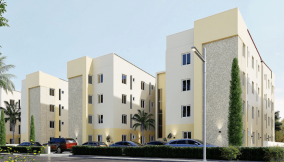The end of the Covid-19 pandemic has raised new questions for the workplace and the FM profession. One of such question is ‘what does this mean for FM practitioners? As we all know, change is the only constant in life and will remain so. Therefore, forecasting the future of work and the workplace in an unpredictable world may be unwise.
Suddenly, FM practitioners have found themselves in a position where they are expected to deliver on change-driven initiatives that tackle demands for an ethical, fair and sustainable future workplace. Some of the initiatives include a focus on wellness, technology and innovation.
A robust workplace strategy that supports the purpose and objectives of an organization has become necessary in today’s ever-changing world. The issue that FM practitioners have to deal with in these new realities is ‘what is this strategy and how will it support the end-users to do their best work wherever they may be?’
Considerations required to make sense of this new strategy should include risk assessment and management of space, understanding the needs and desires of the end-users, communication approach that reaches the right people in the right way, creating a flexibility that allows for business continuity despite the potential changes, and the impact of the squeeze on supply chains.
FM practitioners including facilities managers must find practical ways to deal with current challenges. It will no longer be enough to rely on only technical innovations as moral and ethical solutions take their place in the broad-based strategy.
Read also: IL Bagno commits to growing Nigeria’s interior design industry
One major issue that will continue to be under constant review is ‘flexible working’. The concept of flexible working is here to stay although its meaning for many organizations remain unclear due to understanding patterns and behaviours.
The real question is what will make ‘hybrid’ working a success. The critical factor to consider for workplace policies on where and when people work is that they should be designed with individuals and teams in mind, hence the importance of engaging employees by the HR department and other appropriate authorities. The input of FM managers by providing guidance will be greatly useful to all stakeholders.
Another priority area that should be considered when a ‘hybrid’ working strategy is being designed is talent attraction and retention. This is because the GenZ generation seems more fluid in their work pattern and prefers the flexibility to work from anywhere and deliver instead of the traditional uniform approach of gathering in an office building.
In conclusion, FM practitioners must see themselves as change agents to create the enabling environment for an effective, efficient and productive workforce.
Infrastructure maintenance by Tunde Obileye
Join BusinessDay whatsapp Channel, to stay up to date
Open In Whatsapp





